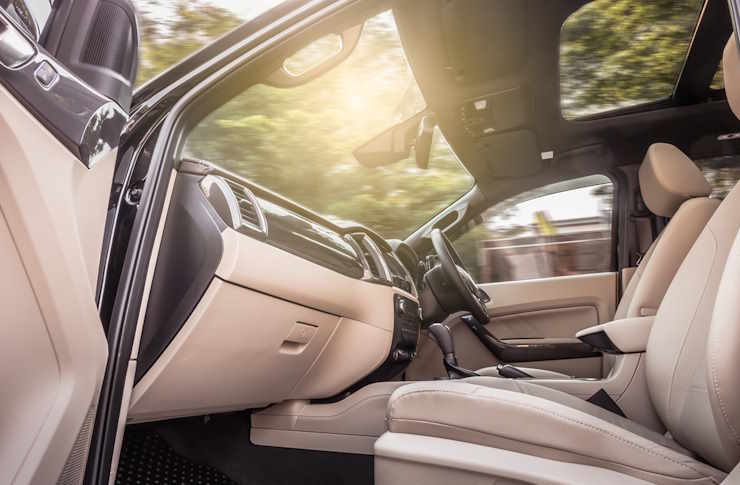Smart Guide to Buying Bank-Repossessed Cars at Competitive Market Prices
Interested in exploring practical ways to save on your next vehicle? This smart buying guide dives into the world of bank-repossessed cars—vehicles often available at below-standard market rates, with many in good condition and a wide range of options. Learn how to navigate local listings and online platforms to make informed, confident choices.

Understanding the Benefits of Bank Repossessed Vehicles
Bank-repossessed cars present compelling advantages for budget-conscious buyers. The primary benefit lies in substantial cost savings, as banks prioritize quick sales over maximum profit margins. These vehicles often sell for 20-40% below market value, making luxury models and newer cars accessible to buyers with modest budgets.
Repossessed vehicles typically maintain their original manufacturer warranties if still valid, providing additional peace of mind. Banks also ensure basic roadworthiness before sale, though comprehensive inspections remain the buyer’s responsibility. The inventory constantly refreshes, offering diverse options from economy cars to premium vehicles.
How to Navigate Listings and Auctions
Finding repossessed cars requires strategic searching across multiple channels. Bank websites frequently feature dedicated sections for asset recovery sales, listing available vehicles with basic specifications and starting prices. Online auction platforms like Manheim and ADESA host regular repossessed car auctions, though some require dealer licenses for participation.
Local newspapers and classified sections often advertise upcoming bank auctions. Government surplus auctions occasionally include repossessed vehicles from credit unions and smaller financial institutions. Establishing relationships with bank asset recovery departments can provide early notifications about upcoming sales.
Auction participation requires preparation. Research vehicle history reports, set maximum bid limits, and understand auction terms before participating. Online bidding has expanded access, but in-person inspections remain valuable when possible.
Essential Tips for a More Assured Purchase
Successful repossessed car purchases demand thorough preparation and realistic expectations. Always obtain vehicle history reports to identify accident damage, flood history, or mechanical issues. Previous owners facing financial difficulties may have deferred maintenance, making professional inspections crucial.
Budget beyond the purchase price for potential repairs and registration fees. Repossessed cars sell as-is without warranties, placing repair responsibilities entirely on buyers. Factor in immediate needs like new tires, oil changes, or minor mechanical work.
Financing options vary significantly. Some banks offer financing for their repossessed inventory, while others require cash payments or pre-approved external financing. Credit unions often provide competitive rates for used vehicle purchases.
| Vehicle Type | Average Savings | Typical Price Range | Key Considerations |
|---|---|---|---|
| Compact Cars | 25-35% below market | $8,000-$15,000 | Higher mileage common |
| Mid-size Sedans | 20-30% below market | $12,000-$22,000 | Good value proposition |
| SUVs/Trucks | 15-25% below market | $18,000-$35,000 | Popular, competitive bidding |
| Luxury Vehicles | 30-45% below market | $20,000-$50,000 | Higher repair costs potential |
Prices, rates, or cost estimates mentioned in this article are based on the latest available information but may change over time. Independent research is advised before making financial decisions.
Inspection and Documentation Requirements
Thorough vehicle inspection protects against costly surprises. Check engine performance, transmission operation, brake condition, and electrical systems. Examine body panels for accident damage, rust, or flood indicators. Interior wear patterns can reveal actual usage levels.
Documentation requirements include clear title transfer, registration paperwork, and proof of sale. Banks typically provide necessary paperwork, but buyers must verify completeness. Some states require emissions testing or safety inspections before registration.
Consider hiring qualified mechanics for pre-purchase inspections, especially for expensive vehicles. Professional assessments cost $100-200 but can identify thousands in potential repair costs.
Financing and Payment Considerations
Payment methods vary by seller and auction format. Cash purchases offer negotiation advantages and eliminate financing delays. Bank drafts or certified checks provide security for larger transactions. Some institutions accept personal checks with proper identification and credit verification.
Financing through the selling bank sometimes offers competitive rates and streamlined approval processes. External financing requires pre-approval and quick closing capabilities, as repossessed car sales typically demand rapid completion.
Budget for additional costs including title transfer fees, registration, insurance, and immediate maintenance needs. These expenses can add $500-1,500 to the total purchase cost.
Repossessed car purchases reward prepared, patient buyers with significant savings opportunities. Success requires research, realistic budgeting, and acceptance of as-is conditions. While risks exist, informed buyers can secure quality vehicles at exceptional values through bank repossession sales.




